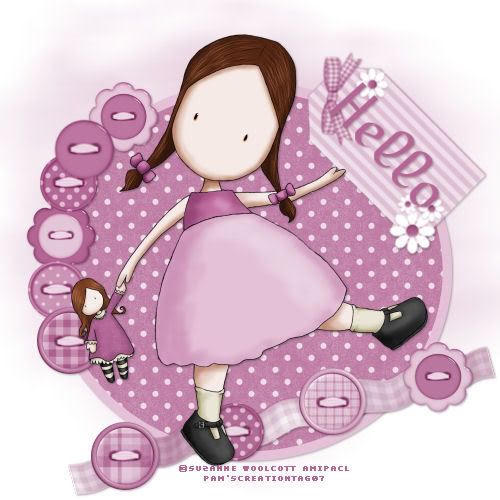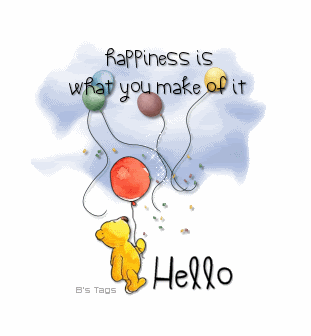
The Hugging Judge
By Jack Canfield and Mark V. Hansen
Lee Shapiro is a retired judge. He is also one of the most genuinely loving people we know. At one point in his career, Lee realized that love is the greatest power there is. As a result, Lee became a hugger. He began offering everybody a hug. His colleagues dubbed him “the hugging judge” (as opposed to the hanging judge, we suppose). The bumper sticker on his car reads, “Don’t bug me! Hug me!”
About six years ago Lee created what he calls his Hugger Kit. On the outside it reads “A heart for a hug.” The inside contains thirty little red embroidered hearts with stickums on the back. Lee will take out his Hugger Kit, go around to people and offer them a little red heart in exchange for a hug.
Lee has become so well known for this that he is often invited to keynote conferences and conventions, where he shares his message of unconditional love. At a conference in San Francisco, the local news media challenged him by saying, “It is easy to give out hugs here in the conference to people who self-selected to be here. But this would never work in the real world.”
They challenged Lee to give away some hugs on the streets of San Francisco. Followed by a television crew from the local news station, Lee went out onto the street. First he approached a woman walking by. “Hi, I’m Lee Shapiro, the hugging judge. I’m giving out these hearts in exchange for a hug.” “Sure,” she replied. “Too easy,” challenged the local commentator. Lee looked around. He saw a meter maid who was being given a hard time by the owner of a BMW to whom she was giving a ticket. He marched up to her, camera crew in tow, and said, “You look like you could use a hug. I’m the hugging judge and I’m offering you one.” She accepted.
The television commentator threw down one final challenge. “Look, here comes a bus. San Francisco bus drivers are the toughest, crabbiest, meanest people in the whole town. Let’s see you get him to hug you.” Lee took the challenge.
As the bus pulled up to the curb, Lee said, “Hi, I’m Lee Shapiro, the hugging judge. This has got to be one of the most stressful jobs in the whole world. I’m offering hugs to people today to lighten the load a little. Would you like one?” The six-foot-two, 230-pound bus driver got out of his seat, stepped down and said, “Why not?”
Lee hugged him, gave him a heart and waved good-bye as the bus pulled out. The TV crew was speechless. Finally, the commentator said, “I have to admit, I’m very impressed.”
One day Lee’s friend Nancy Johnston showed up on his doorstep. Nancy is a professional clown and she was wearing her clown costume, makeup and all. “Lee, grab a bunch of your Hugger Kits and let’s go out to the home for the disabled.”
When they arrived at the home, they started giving out balloon hats, hearts and hugs to the patients. Lee was uncomfortable. He had never before hugged people who were terminally ill, severely retarded or quadriplegic. It was definitely a stretch. But after a while it became easier, with Nancy and Lee acquiring an entourage of doctors, nurses and orderlies who followed them from ward to ward.
After several hours they entered the last ward. These were 34 of the worst cases Lee had seen in his life. The feeling was so grim it took his heart away. But out of their commitment to share their love and to make a difference, Nancy and Lee started working their way around the room followed by the entourage of medical staff, all of whom by now had hearts on their collars and balloon hats on their heads.
Finally, Lee came to the last person, Leonard. Leonard was wearing a big white bib which he was drooling on. Lee looked at Leonard dribbling onto his bib and said, “Let’s go, Nancy. There’s no way we can get through to this person.” Nancy replied, “C’mon, Lee. He’s a fellow human being, too, isn’t he?” Then she placed a funny balloon hat on his head. Lee took one of his little red hearts and placed it on Leonard’s bib. He took a deep breath, leaned down and gave Leonard a hug.
All of a sudden Leonard began to squeal, “Eeeeehh! Eeeeeehh!” Some of the other patients in the room began to clang things together. Lee turned to the staff for some sort of explanation only to find that every doctor, nurse and orderly was crying. Lee asked the head nurse, “What’s going on?”
Lee will never forget what she said: “This is the first time in 23 years we’ve ever seen Leonard smile.”
How simple it is to make a difference in the lives of others.
By Jack Canfield and Mark V. Hansen
Lee Shapiro is a retired judge. He is also one of the most genuinely loving people we know. At one point in his career, Lee realized that love is the greatest power there is. As a result, Lee became a hugger. He began offering everybody a hug. His colleagues dubbed him “the hugging judge” (as opposed to the hanging judge, we suppose). The bumper sticker on his car reads, “Don’t bug me! Hug me!”
About six years ago Lee created what he calls his Hugger Kit. On the outside it reads “A heart for a hug.” The inside contains thirty little red embroidered hearts with stickums on the back. Lee will take out his Hugger Kit, go around to people and offer them a little red heart in exchange for a hug.
Lee has become so well known for this that he is often invited to keynote conferences and conventions, where he shares his message of unconditional love. At a conference in San Francisco, the local news media challenged him by saying, “It is easy to give out hugs here in the conference to people who self-selected to be here. But this would never work in the real world.”
They challenged Lee to give away some hugs on the streets of San Francisco. Followed by a television crew from the local news station, Lee went out onto the street. First he approached a woman walking by. “Hi, I’m Lee Shapiro, the hugging judge. I’m giving out these hearts in exchange for a hug.” “Sure,” she replied. “Too easy,” challenged the local commentator. Lee looked around. He saw a meter maid who was being given a hard time by the owner of a BMW to whom she was giving a ticket. He marched up to her, camera crew in tow, and said, “You look like you could use a hug. I’m the hugging judge and I’m offering you one.” She accepted.
The television commentator threw down one final challenge. “Look, here comes a bus. San Francisco bus drivers are the toughest, crabbiest, meanest people in the whole town. Let’s see you get him to hug you.” Lee took the challenge.
As the bus pulled up to the curb, Lee said, “Hi, I’m Lee Shapiro, the hugging judge. This has got to be one of the most stressful jobs in the whole world. I’m offering hugs to people today to lighten the load a little. Would you like one?” The six-foot-two, 230-pound bus driver got out of his seat, stepped down and said, “Why not?”
Lee hugged him, gave him a heart and waved good-bye as the bus pulled out. The TV crew was speechless. Finally, the commentator said, “I have to admit, I’m very impressed.”
One day Lee’s friend Nancy Johnston showed up on his doorstep. Nancy is a professional clown and she was wearing her clown costume, makeup and all. “Lee, grab a bunch of your Hugger Kits and let’s go out to the home for the disabled.”
When they arrived at the home, they started giving out balloon hats, hearts and hugs to the patients. Lee was uncomfortable. He had never before hugged people who were terminally ill, severely retarded or quadriplegic. It was definitely a stretch. But after a while it became easier, with Nancy and Lee acquiring an entourage of doctors, nurses and orderlies who followed them from ward to ward.
After several hours they entered the last ward. These were 34 of the worst cases Lee had seen in his life. The feeling was so grim it took his heart away. But out of their commitment to share their love and to make a difference, Nancy and Lee started working their way around the room followed by the entourage of medical staff, all of whom by now had hearts on their collars and balloon hats on their heads.
Finally, Lee came to the last person, Leonard. Leonard was wearing a big white bib which he was drooling on. Lee looked at Leonard dribbling onto his bib and said, “Let’s go, Nancy. There’s no way we can get through to this person.” Nancy replied, “C’mon, Lee. He’s a fellow human being, too, isn’t he?” Then she placed a funny balloon hat on his head. Lee took one of his little red hearts and placed it on Leonard’s bib. He took a deep breath, leaned down and gave Leonard a hug.
All of a sudden Leonard began to squeal, “Eeeeehh! Eeeeeehh!” Some of the other patients in the room began to clang things together. Lee turned to the staff for some sort of explanation only to find that every doctor, nurse and orderly was crying. Lee asked the head nurse, “What’s going on?”
Lee will never forget what she said: “This is the first time in 23 years we’ve ever seen Leonard smile.”
How simple it is to make a difference in the lives of others.

